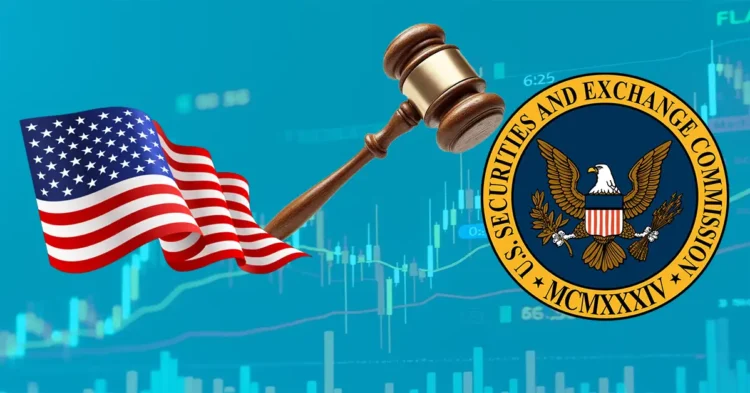Eighteen U.S. states have launched a significant legal battle against the Securities and Exchange Commission (SEC), challenging what they perceive as federal overreach in the realm of cryptocurrency regulation. Spearheaded by Kentucky Attorney General Russell Coleman, this coalition includes prominent figures such as Florida’s Ashley Moody, Texas’s Ken Paxton, and Tennessee’s Jonathan Skrmetti. Together, they are voicing concerns over the SEC’s enforcement of ambiguous crypto regulations, which, in their opinion, infringe upon states’ rights. But what has fueled such a substantial pushback? Let’s delve deeper into the crypto versus SEC case and uncover what is truly at stake.
States Claim the SEC is Overstepping
The attorneys general from these states argue that SEC Chair Gary Gensler is attempting to wield excessive control over the crypto industry. Gensler has asserted that most cryptocurrencies, with the exception of prominent names like Bitcoin and Ether, should be classified as securities. This perspective has led the SEC to target major crypto companies such as Coinbase and Ripple, arguing that these firms failed to register their assets appropriately. However, the states contend that the SEC’s actions are overstepping boundaries, potentially disregarding the original intent of Congress regarding crypto oversight. They argue that this approach is not only causing confusion but also posing potential harm to a rapidly growing industry.
The AGs believe that cryptocurrency regulations should primarily remain at the state level to better align with local needs. With digital assets continuing to evolve, they argue that federal interference could stifle innovation and hinder business growth.
Political and Industry Backing
This legal action is not solely about the states; it has garnered significant political support as well. Influential figures such as Tennessee Senator Bill Hagerty have criticized what they describe as the SEC’s “anti-crypto agenda.” The lawsuit aligns with recent commitments from President-elect Donald Trump, who has pledged to bolster the crypto industry by curbing federal oversight. For many within the crypto community, this lawsuit represents an opportunity to challenge what they perceive as overregulation.
Industry advocates, alongside AGs like Indiana’s Theodore E. Rokita, Mississippi’s Lynn Fitch, and Missouri’s Andrew Bailey, argue that states are better equipped to develop practical and effective crypto regulations. This lawsuit is part of a broader movement aimed at shifting regulatory authority from federal to state jurisdiction.
Former U.S. Senate candidate John E. Deaton expressed his satisfaction in taking legal action against the SEC on January 1, 2021, shortly after they initiated the case against XRP.
What to Expect
This case has the potential to bring about significant changes to the crypto industry in the United States. With Republicans holding key positions and potential shifts in leadership at the SEC, there may be a move towards more crypto-friendly regulations that emphasize states’ rights. Should the plaintiffs emerge victorious, states like Oklahoma (AG Gentner Drummond) and Iowa (AG Brenna Bird) could soon wield greater control over crypto policies. The prolonged Ripple lawsuit serves as an example of the SEC’s persistence, even in the face of clear rulings from Judge Torres. The crypto community keenly anticipates the outcome of this Crypto vs. SEC case filed by the AGs, as it could redefine digital asset management and pave the way for clearer, more innovation-friendly regulations.











